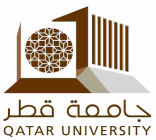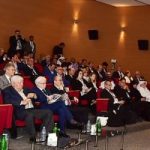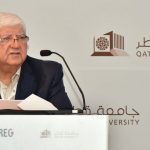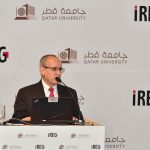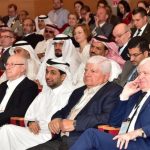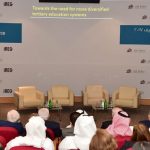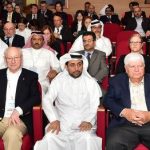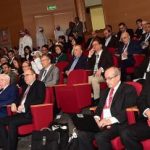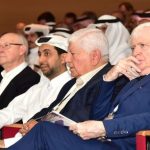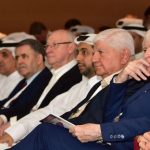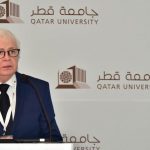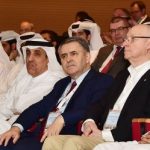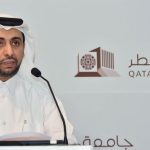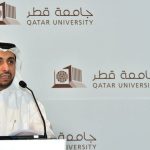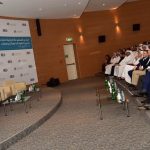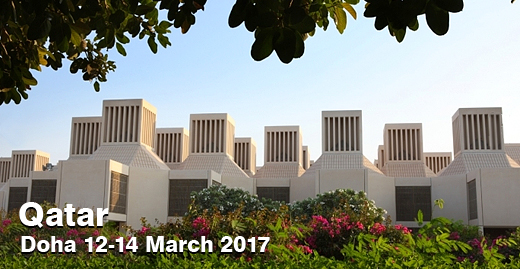
IREG Forum 2017
on Academic Ranking
Excellence
as the University Driving Force
Organizers:
Sponsors:
Background and overview
The concept of “excellence” in higher education and research is subject of various definitions and interpretations. It primarily applies to the main functions performed by university: teaching, research and services. The “excellence” and its meaning is influenced by the political and economic conditions as well as social and cultural environment in which a university functions. Not to mention that “excellence” can be differently understood by various stakeholders, academic disciplines, etc.
The above observations do not diminish the fact that “excellence” can be more than a description of current performance but foremost the goal or aspiration of the university; the way it is organized, functions and relates to its environment. In other words, the academic excellence should be seen not only as a major marker of performance but even more as a driving force for the forward-looking university.
IREG Forum 2017, to be hosted by the Qatar University, will look at multitude of issues related to “academic excellence” from policy and practical perspective. The Program Committee of the Forum has identified the following key carrying themes [reflected also in the theme of a particular session] as particularly relevant:
– excellence as “set of standards and guidance” for functioning and development of university;
– excellence as “a framework” for teaching and organization of studies in the context of the needs of a country or a region;
– excellence in the context of cultural and economic transformation;
– understanding the principles of “excellence in various academic disciplines and institutional settings.
It is a matter of fact that academic rankings are one of the key expressions of “excellence” in higher education. However, assessing the “excellence in teaching” has been, and still is, a long-standing argument facing rankings, particularly the international ones. It is why the IREG Forum 2017 intents to draw a particular attention to accumulated experiences as well as challenges in this area.
Similarly to previous IREG conferences, during the “IREG Qatar Forum” there will be an opportunity to learn about new initiatives in academic rankings and related to it developments in universities and other organizations. The Forum will provide a platform for interaction with ranking organizations and experts, and to discuss different aspects of broadly understood “academic excellence”.
ORGANIZERS
IREG Observatory on Academic Ranking and Excellence
Qatar University (host)
Program Committee
Jan Sadlak, President, IREG Observatory on Academic Ranking and Excellence, Co-Chair
Hassan Rashid Al-Derham, President of Qatar University, Co-Chair
Mazen O. Hasna, Vice-President and Chief Academic Officer, Qatar University
Waldemar Siwinski, Vice-President, IREG Observatory; President, Perspektywy Education Foundation, Poland
Liu Nian Cai, Vice-President, IREG Observatory; Director, Center for World-Class Universities, Shanghai Jiao Tong University, China
Gero Federkeil, Vice-President, IREG Observatory; CHE Center for Higher Education, Germany
Khaled AL-Rasheid, Professor and Director of the Distinguished Scientist Fellowship Program, College of Science, King Saud University, Saudi Arabia
Organizing Committee
Kazimierz Bilanow, IREG Observatory
Cesar Wazen, Qatar University
Masoud Nasser Al-Yami, Qatar University
PROGRAM
12-14 March 2017, Doha, Qatar
[venue: University Library, Campus of Qatar University] See map
As of 6 March 2017
Program outline
Sunday, 12 March
- 10.00-18.00
Executive Committee of IREG Observatory [closed meeting]
[venue: The Ritz-Carlton Hotel]
- 19.00-21.00
Welcome Reception
The Ritz-Carlton Hotel West Bay Lagoon, Doha, Qatar www.ritzcarlton.com/doha
Monday, 13 March
- 8.00-8.30
- Registration
- 8.30-10.00
- Opening Session: Welcome and opening remarks followed by keynote address
- Jan Sadlak, President of IREG Observatory
- Hassan Rashid Al-Derham, President of Qatar University
- HE Ibrahim Al-Ibrahim, Board member at Qatar University and Economic Advisor for H.H. the Emir of Qatar at Amiri Diwan: Excellence in Higher Education and its role in Qatar National Vision 2030
- Francisco Marmolejo, Lead, Global Solutions Group on Tertiary Education and Lead Education Specialist for India, The World Bank: Benefits and excesses in the use of rankings
- 10.00-11.00
- First Session: Excellence as a “set of standards and guidance” for functioning and development of the university
Chair: Mukash Burkitbayev, First Vice-Rector, Al-Farbi Kazakh National University, Kazakhstan
Speakers:
- Andy Martin, Founder and Director of Firetail Limited, United Kingdom: Challenge from Mid-Ranking Universities: Findings of Firetail Report – Class of 2030: Which Universities Will Rise – And How Will They Do It?
- Ying Cheng, Center for World-Class Universities, Shanghai Jiao Tong University, China: How is Ranking Adopted in Setting WCU Policies in China?
- Shadi Awwad, Elsevier Regional Solutions Manager – Turkey, Middle East and Central Asia Scientific Research in the Arab World: An internal look and a comparative analysis with the rest of the world
- 11.00-11.30
- Coffee Break
- 11.30-13.00
- Second Session: Excellence as “a framework” for teaching and organization of studies in the context of the needs of a country or a region
Chair: Marko Marhl, Professor, Faculty of Education & Faculty of Natural Sciences and Mathematics, University of Maribor, Member of the Executive Committee of IREG Observatory, Slovenia
Speakers:
- Narimane Hadj-Hamou, Chief Executive Officer, CLIKS – Center for Learning Innovations & Customized Knowledge Solutions, United Arab Emirates: Redefining Excellence for Higher Education in the Arab Region: Strategies and Lessons Learned
- Marek Kwiek, Director, Center for Public Policy Studies; Chairholder, UNESCO Chair in Institutional Research and Higher Education Policy, Adam Mickiewicz University of Poznan, Poland: University Rankings and the Competition for Prestige, Excellence, and Funding – in the Context of Central Europe and Its Reform Agendas
- R. Lizzie Wahab, International Education Expert and former AVP at the University of New Haven, USA: Education Modalities: challenges of international frameworks for non-traditional learning environments in MENA countries
- 13.00-14.00
- Lunch
- 14.00-14:15
- Poster session open
- 14:15-16:00
- Third Session: Excellence in the context of cultural and economic transformations
Chair: António Rendas, Rector, University NOVA of Lisbon, Portugal
Speakers:
- Karima Mariama-Arthur, Founder and CEO, WordSmithRapport, USA: Why Excellence Is the Best Place to Begin: The Transformative Power of Effective Leadership In Professional Contexts
- Luiz Costa, Academic Vice Rector of IESB University, Former Vice-Minister of Education and former Rector of Federal University of Viçosa, Brazil: New Approach in Meeting Challenges of Wider Access and Pursuing Excellence in Brazilian Higher Education
- Nico Jooste, President, International Education Association of South Africa (IEASA); Senior Director, International Education, Nelson Mandela Metropolitan University, South Africa: Excellence and world class: are university rankings helpful for societies in transition?
- 16.00-16.15
- Coffee Break
- 16.15-18.15
- Fourth Session: Principles of “excellence” in various academic disciplines and institutional settings
Chair: Khaled AL-Rasheid, Professor and Director of the Distinguished Scientist Fellowship Program, College of Science, King Saud University, Saudi Arabia
Speakers:
- N.V. Varghese, Director, Centre for Policy Research in Higher Education (CPRHE), India: Ranking System Framework for Higher Educational Institutions of India – Empowering Tool for Enhancement of Quality
- David Pendlebury, Senior Analyst, Clarivate Analytics, formerly the IP&Science business of Thomson Reuters, United States: Bibliometric Indicators of Research Excellence: Their Uses and Limitations
- Amin Noaman, Vice-president for development, King Abdulaziz University (KAU), Saudi Arabia: Universties’ commitment to excellence in knowledge transfer and social entrepreneurship: KAU case study
- 20.00-22.00
- Conference Gala Dinner Venue: The Ritz-Carlton West Bay Lagoon, Doha, Qatar www.ritzcarlton.com/doha
Tuesday, 14 March
- 9.00-11.00
- Fifth Session: International rankings and their regional variations: Experience of the Arab Region rankings [and beyond]
Chair: Mazen Hasna, Associate Professor of Electrical Engineering, Qatar University
Speakers from invited global and regional ranking organizations:
- Ben Sowter, Head of the QS Intelligence United Kingdom [QS World University Rankings];
- Murat Perit Cakir, Middle East Technical University, Turkey [URAP – University Ranking by Academic Performance].
- Richard Holmes, University Ranking Watch, International Rankings and the Assessment of Teaching: A Regional Perspective
- 11.00-11.30
- Coffee Break
- 11.30-13.30
- Sixth Session: New rankings and rankings-related initiatives
Chair: Daniel Guhr, Managing Director, The Illuminate Consulting Group, USA
Speakers:
- Waldemar Siwiński, President, Perspektywy Education Foundation, Vice-President of IREG Observatory, Poland: IREG Inventory of International Rankings
- Xuejun (Snow) Wang, Ranking Manager, Shanghai Ranking Consultancy Ltd, China: Shanghairanking’s Global Ranking of Academic Subjects 2016: New Methodological Elements
- Riri Fitri Sari, Professor, Chairperson of UI GreenMetric Rankings of World Universities, University of Indonesia: Trends in Sustainable Universities: 2016 UI GreenMetric World University Rankings Report
- 13.30-13.45
- Invitation to IREG-9 Conference: presentation from the host institution Closing remarks
- 14.30-16.00
- General Assembly of IREG Observatory [for members of IREG the organization]
SPEAKERS
 Jan Sadlak
Jan Sadlak
President of IREG Observatory on Academic Ranking and Excellence, Belgium
Jan Sadlak was elected in October 2009 as the President of the IREG Observatory on Academic Ranking and Excellence.
He is internationally recognized and highly cited expert in higher education policy, governance and management at the system and institutional level [H-index – 12]. His research interests and publications cover such topics as processes of reform and transformation in higher education and science policy, organization of doctoral studies and qualifications, private higher education, world-class university, quality assurance and academic ranking as well as ethical dimension of higher education and academic values. He is [or has been] a member of the editorial boards of the leading journals in the field of higher education, science and social policy as well as international relations.
In the period September 2009 – January 2011, he has been Professor and Vice-rector for International Cooperation at the University of Social Sciences and Humanities/SWPS in Warsaw, Poland. From October 1999 to July 2009, he has been Director of UNESCO-European Centre for Higher Education (UNESCO-CEPES) and Representative of UNESCO in Romania. Prior to this position he was Chief of Section for Higher Education Policy at UNESCO, Paris [1992 – 1999].
He has a long record of being a member of the governing boards, scientific councils of various bodies and organizations. At present he is Member of the Board of Directors of AVEPRO – Agenzia della Santa Sede per la Valutazione e la Promozione della Qualità e Facoltà Ecclesiastiche [the Holy See’s Agency for Evaluation and Promotion of Quality in Ecclesiastical Universities and Faculties], the Member of The Leadership Advisory Board Center for Learning Innovations and Customized Knowledge Solutions (CLIKS), Dubai, the United Arab Emirates.
Jan Sadlak was awarded several high-level national and academic distinctions and seven honorary doctorates (Doctor honoris causa) from leading universities in Romania, Russian Federation, Ukraine, and Kazakhstan. He is Member Correspondent of the European Academy of Arts, Sciences and Humanities – Academia Europensis, France, and Fellow of the World Academy of Art and Science, USA.
He has been teaching at the leading universities in Canada, China, Kazakhstan, Poland, Romanian, Russia, Malaysia, and the United Kingdom.
He holds PhD (1988) in Educational Administration and Comparative Education from the SUNY/ University of Buffalo, USA, and M.A. (1968) in Economics from the University of Economics in Wrocław, Poland.
 Hassan Rashid Al-Derham
Hassan Rashid Al-Derham
President of Qatar University
Dr Al-Derham assumed the position on 15 June 2015. He was previously Vice-President for Research from 2007 during which he guided QU to its current position as leader of research excellence in the GCC region, which was enhanced by its continuous success in winning the largest percentage of grants in the National Priorities Research Program (NPRP) and Undergraduate Research Experience Program (UREP) under the Qatar National Research Fund (QNRF).
He also served in several earlier roles at QU including Associate VP for Research and Head of Civil Engineering at the College of Engineering. He holds a PhD and Post-Graduate Diploma in Construction Project Management from University of South Wales, UK which followed obtaining a Master’s Degree in Civil Engineering from Georgia Tech, USA. His undergraduate is in Architectural Engineering from North Carolina Agriculture and Technical State University, USA.
 HE Ibrahim Al-Ibrahim
HE Ibrahim Al-Ibrahim
Board member at Qatar University and Economic Advisor for H.H. the Emir of Qatar at Amiri Diwan
Dr Ibrahim led the coordination of the Qatar National Vision 2030, and subsequently the preparation of Qatar’s First National Development Strategy 2011-2016 to help achieve the goals and objectives of the Vision.
Dr. Ibrahim has wide experience in the oil and gas industry. He is the Vice Chairman of the Board of RasGas Company, the Vice Chairman of the Board of Qatar Gas Company Limited.
Dr. Ibrahim was an Associate Professor of Business, Economics and Quantitative methods at the University of Hawaii, Honolulu, USA from 1970-1978, Director of the Economic Department of the Organization of Arab Petroleum Exporting Countries, Kuwait from 1979-1986, and a Senior Economist at the Oxford Institute for Energy Studies, Oxford, England from 1986-1988. Dr. Ibrahim holds a Ph.D. in Business Administration from New York University in 1969 and his scholarly research has been published internationally in the areas of forecasting, business economics, and energy economics.
 Francisco Marmolejo
Francisco Marmolejo
Lead, Global Solutions Group on Tertiary Education and Lead Education Specialist for India, The World Bank
Francisco Marmolejo is the World Bank’s Tertiary Education Coordinator. At this international development agency he serves as the institutional focal point on the topic of tertiary education, and leads the technical support to regional and country-level related projects that the Bank has in more than 60 countries.
Before joining the World Bank Group, from 1995 to 2012, he served as founding Executive Director of the Consortium for North American Higher Education Collaboration (CONAHEC) as well as Assistant Vice President for Western Hemispheric Programs at the University of Arizona. Previously, he was an American Council on Education Fellow at the University of Massachusetts-Amherst; and both Vice President for Administration and Finance and Academic Vice President at the Universidad de las Américas in Mexico. Marmolejo holds an M.A. in Organizational Administration from the Universidad Autónoma de San Luis Potosí (UASLP) in Mexico, and has conducted doctoral work at the Universidad Nacional Autónoma de México. He regularly speaks and writes on a wide range of tertiary education issues. His international education experience has taken him to more than 70 countries around the world, where he has worked with universities, governments and international associations on international education projects over more than 30 years.
 Mukash Burkitbayev
Mukash Burkitbayev
First vice rector of al-Farabi Kazakh National University, doctor of Chemical Sciences, Professor
Graduated from Chemical Faculty of S. Kirov Kazakh State University in 1975. His work experience includes a way from an intern researcher to a professor, dean of the chemical faculty, first vice-rector of Al-Farabi Kazakh National University. Since 1997 he was the chair of non-organic chemistry cathedra, in 2009-2010 was the dean of chemical faculty.
M. Burkitbayev has initiated and on behalf of Kazakhstan has managed several large International projects (Kazakhstan-United Kingdom) in the network of “Science for peace” NATO Program, UNESCO, MAGATE, ISTC. M. Burkitbayev is one of the organizers and executive secretary of the first Kazakh scientific English language journal “Euroasian Chemico-Technological Journal”, member of an editorial board of “International Journal on Chemistry and Biology”. He is a member of Higher Attestation Commission expert committee. Member of MAGATE international commission on former Semipalatinsk nuclear polygon issues.
 Andy Martin
Andy Martin
Founder and Director of Firetail Limited, United Kingdom
Andy is the founder and Director of Firetail. He has over 15 years experience as a strategy consultant and is an advisor to senior leaders in charities, NGOs, foundations and social enterprises.He has led strategy and evaluation engagements for clients including the Bill and Melinda Gates Foundation, the United Nations, the Queen’s Trust, the Royal Society of Chemistry, Oxfam International, Save the Children UK, Malaria No More UK, Comic Relief and Anthony Nolan. He also works as an advisor to a number of start-ups and social ventures.
Prior to founding Firetail, Andy was Head of Strategy for Cancer Research UK, where he ran the Strategy Unit and Consumer Insight teams, covering fundraising, marketing and public engagement for the UKʼs largest charity. He was a founder member of the commercial strategy consulting firm Credo, and a founding Governor of the public participation organisation, The Democratic Society. Andy holds a degree in Politics, Philosophy and Economics from the University of Oxford.
 Ying Cheng
Ying Cheng
Center for World-Class Universities, Shanghai Jiao Tong University, China
Ying Cheng, Dr. is an Associate Professor and the Executive Director of Center for World-Class Universities at Graduate School of Education, Shanghai Jiao Tong University (SJTU). He entered SJTU in 1996. There he obtained his bachelor degree in Polymer Science and Engineering (2000) and his doctoral degree in S&T and Education Management (2007). From 2007 to 2008, he went to Paris as a postdoctoral fellow attached to Ecole des Hautes Etudes en Sciences Sociales (EHESS) but conducted his studies at the Observatoire des Sciences et des Techniques (OST).
His current research interests include the ranking, evaluation and classification of universities, and empirical studies of World-Class Universities. He is the co-editor of three books, including Path to a World-Class University (2010) and University Ranking: Internationalization and Diversification (2009, In Chinese). He has been responsible for the annual update and new development of the Academic Ranking of World Universities since 2005.
 Marek Kwiek
Marek Kwiek
Professor Marek Kwiek holds a UNESCO Chair in Institutional Research and Higher Education Policy and is a director of the Center for Public Policy Studies at the University of Poznan, Poland.
An international higher education policy expert to the European Commission, OECD, the World Bank, UNESCO, OSCE, the Council of Europe, USAID etc. His research interests include university governance, academic entrepreneurialism, and the academic profession.
He published 170 papers and 9 monographs, mostly internationally. His recent monograph is Knowledge Production in European Universities: States, Markets, and Academic Entrepreneurialism (2013). A Principal Investigator or country Team Leader in about 50 international higher education research and policy projects (global and European), funded by the European Union, European Science Foundation (ESF), Fulbright, Ford, and Rockefeller foundations.
He has spent three years at North American universities; he was a Fulbright „New Century Scholar“ (2007-2008) and a Visiting Professorial Fellow in the Institute of Education, University of London (2012-2013). He is an editorial board member of Higher Education Quarterly, European Educational Research Journal, British Educational Research Journal and European Journal of Higher Education. Contact: kwiekm@amu.edu.pl.
Richard Holmes
University Ranking Watch
Richard Holmes holds MA degrees from the Universities of Cambridge and Surrey and a PhD from Binghamton University SUNY. He has worked at colleges and universities in the USA, Nigeria and Malaysia, most recently at Universiti Teknologi MARA, and has published on social history, discourse analysis and applied linguistics. He currently produces the blog University Ranking Watch and has written about rankings and related topics in University World News, Wonk HE, Study International, the Asian Journal of University Education and other publications.
 Marko Marhl
Marko Marhl
Professor, Faculty of Education & Faculty of Natural Sciences and Mathematics, University of Maribor, Member of the Executive Committee of IREG Observatory, Slovenia
He is Head of the Continuing Education Centre at the Faculty of Education of the University of Maribor. For a short period (2006-2007), he was Vice Dean for Scientific Research and Postgraduate Studies at the Faculty of Education of the University of Maribor.
In 2007, he was appointed Vice Rector for International Affairs at the University of Maribor for a period of four years.
In terms of research, he is engaged in the general analysis of dynamical systems. Biophysical systems from the field of cellular signalling are still the basis on which the local stability analysis of attractors and the influence of external signals on the system are being studied.
 Narimane Hadj-Hamou
Narimane Hadj-Hamou
Chief Executive Officer, CLIKS – Center for Learning Innovations & Customized Knowledge Solutions, United Arab Emirates
Educated in the USA, with a PhD in Software Engineering and a Master in Computer Science; Dr. Narimane is the founder and current the CEO of the Center of Learning Innovations and Customized Knowledge Solutions (CLICKS); a regional Center with a unique vision established to support the healthy growth and development of higher education in the Arab region and beyond through the provision of learning and development opportunities. Prior to establishing CLICKS, she was the Assistant Chancellor for Learning and Academic Development (Provost) at the Hamdan Bin Mohammed Smart University, in Dubai, UAE where she has established and led the academic, research and eLearning vision of the first online University to be recognized and accredited by the Ministry of Higher Education and Scientific Research in the UAE.
Dr. Narimane acts as a consultant for various regional UNESCO offices and for a accreditation agencies where she is involved in areas related quality assurance and the embracement of new forms of learning such as e-learning. She is highly sought speaker and program leader. Dr. Hadj-Hamou was in 2015 recognized by Forbes Magazine for her contribution to education and was listed among the 200 most powerful Arab Women.
Murat Perit Cakir
Middle East Technical University, Turkey
Murat Perit Cakir is an assistant professor in the Cognitive Science program at the Informatics Institute at the Middle East Technical University in Ankara, Turkey. He has been a member of University Ranking by Academic Performance (URAP) lab since 2010, focusing on the design and development of performance indicators for ranking and benchmarking purposes. In addition to university rankings and bibliometrics, his main research areas involve human–computer interaction, computer-supported collaborative learning and cognitive neuroscience of learning. Dr. Cakir received his PhD from the College of Information Science & Technology at Drexel University, and holds an MS/MCIT in Computer Science from University of Pennsylvania and a BS in Mathematics from Middle East Technical University.
 Amin Noaman
Amin Noaman
Vice-president for development, King Abdulaziz University (KAU), Saudi Arabia
Dr. Amin Noaman holds the position of Vice President for Development at King Abdulaziz University, Saudi Arabia. He a computer science enthusiast and an IT consultant for many companies and organizations. He’s also an SAP certified consultant and a BVQI certified auditor.
He has taught various courses in computer science and information system. Now he is teaching a graduate course in Advance Database Systems at King Abdulaziz University.
Furthermore, he has developed curriculums of Computer Science and Information Technology for many colleges. He also has published a set of papers in journals and conferences.
Having spent so many years in academia, he has been honored five timesamong which are the Faculty of Science and Fellowship, both from the University of Manitoba; also the distinction award in Teaching from King Abdulaziz University. Along with 30 years of experience, Dr. Noaman holds a Ph.D. in Data Warehousing from the University of Manitoba in 1999.
 R. Lizzie Wahab
R. Lizzie Wahab
Associate Vice President , University of New Haven, USA
R. Lizzie Wahab is the Associate Vice President Enrollment Management and Program Development at the University of New Haven (UNH). She is a graduate of Wesleyan College, the first women’s college chartered to grant degrees to women, and received her MS in Biomedical Sciences from The State University of New York – Buffalo. Ms. Wahab has been the driving force in international program initiatives at UNH, including curricular joint ventures for the university based on mapping institutions and designing collaborative arrangements within Southeast Asia and the Middle East.
Ms.Wahab has been central in the establishment of international program development initiatives, assessing capacity to provide in-country training in specific educational fields and new student markets. As an expert on international credit mobility she works closely with governmental and non-governmental agencies to encourage trainee participation from MENA and Asia and has been invited to provide regional perspectives and recommendations for internationalization, to develop agendas, framework for action, evaluation and adoption at many peer institutions both in the US and abroad.
António Rendas
Rector, University NOVA of Lisbon, Portugal
Dr. António Rendas has been the Research Associate in Pathology at the Harvard Medical School and at the Children’s Hospital Medical Center, in Boston, USA, in 1978. He did his public exam for Extraordinary Professor of Pathophysiology, in 1979 at the Faculty of Medical Sciences (FMS) and is Full Professor of Pathophysiology, since 1982.
He was Director of the Institute of Tropical Medicine during three years (1983-1986), has been Vice Dean for six years at the Faculty of Medical Sciences (1990-1996) and appointed Dean of the FMS in 1996 until 2006. President of the Portuguese Council of Rectors, since March 2010 until September 2014. Major interest research areas: respiratory pathology, biomedical aging evaluation, medical education, university management and performance indicators. He authored and co-authored 138 lectures and 76 scientific articles at national and international level. Main Investigator of 7 national projects. He has held numerous national and international consultancies and is currently member of the Consultative Council for Scholarships of the Calouste Gulbenkian Foundation, Member of the Executive Committee of the Association of Medical Schools in Europe, Member of the Steering Committee for the Autonomy Scorecard of the European University Association. Member of the Network of Universities from the Capitals of Europe Steering Committee.
 Karima Mariama-Arthur
Karima Mariama-Arthur
Founder and CEO, WordSmithRapport, USA
Karima is founder and CEO of WordSmithRapport™, an international consulting firm specializing in professional development and strategic corporate advisory services. An internationally recognized expert in cutting-edge adult education and complex consulting, she brings more than two decades of comprehensive, blue chip experience in law, business, and academia to the field of professional development. Her clients include Fortune 500 companies, as well as leading corporate, government, academic and non-profit entities in every continent around the globe. She is the author of Poised for Excellence and a member of the Forbes Coaches Council. Her work is regularly featured by the Human Capital Institute, Forbes, Entrepreneur, Success, Black Enterprise and Speaker magazines.
Karima is the President of the Women’s Global Leadership Initiative Global Advisory Board and is a TEDx Speaker, Corporate Speaker, certified by the International Association of Corporate Speakers, a Professional Member f the National Speakers Association, an esteemed graduate of the Bill Gove Executive Speech Workshop, and a Distinguished Toastmaster (DTM), United States Senate. She is a Cornell University Fellow and graduate of the University of California at Davis and Roger Williams University School of Law.
 Luiz Costa
Luiz Costa
Academic Vice Rector of IESB University, Former Vice-Minister of Education and former Rector of Federal University of Viçosa, Brazil
PhD from the Reading University and is now retired as a Full Professor in the area of agricultural and climate change at the Agricultural Engineering Department of the Universidade Federal de Viçosa. At the University he held the following positions: Rector (2008-2011); Head of Department of Agricultural Engineering (2006-2008); Pro-Rector (2000-2004); Postgraduate Coordinator of the Program in Agricultural Engineering (1994-1999). He published more than 300 scientific papers nationally and internationally and advised over 60 Doctor’s and Master’s theses, and scientific researches papers. He was Leader of the research team specialists of Climate Change and Agricultural of the World Meteorological organization (WMO), from 2006 to 2010. Reviewer of the 5threport of IPCC (UN). Within the Ministry of Education of Brazil, Mr. Costa held the following positions: Secretary of Higher Education (2011–2012); President of the National Institute of Educational Studies and Research Anísio Teixeira (INEP), from 2012 to 2014. Vice-Minister Education from February 2014 to May 2016; Acting Minister of Education in 2015.
Nico Jooste
President, International Education Association of South Africa (IEASA); Senior Director, International Education, Nelson Mandela Metropolitan University, South Africa
Nico Jooste is involved in the re-thinking of Internationalisation Globally and arranged the Global Dialogue on the future of Higher Education Internationalisation in January 2014 in Port Elizabeth, South Africa. This event brought together all the major role players in Higher Education Internationalisation. He is currently also the Deputy President of the International Education Association of South Africa.
Prior to his appointment at the NMMU (initially UPE before the merger) he was the Executive Director of Eastern Cape Higher Education Association from June 1998 to June 2000. He was also the Acting University Registrar of the University of Fort Hare from Jan 1995 – December 1996 and Deputy Registrar Academic from Jan 1993. He was Lecturer and Senior Lecturer in the Department of History and Economic History, University of Fort Hare from. February 1982 – February 1992. Areas of specialization: Eastern Cape History and International relations of South Africa during the period of the Cold War.
 Khaled AL-Rasheid
Khaled AL-Rasheid
Professor and Director of the Distinguished Scientist Fellowship Program, College of Science, King Saud University, Saudi Arabia
Awarded his Ph.D in 1992 from Southampton University, UK in the specialty of ecology, environmental pollution and microbial protistology. Working as a professor at King Saud University in Riyadh, during which he supervised several postgraduates to prepare for master and doctoral degrees. Published four books and more than three hundred scientific papers in international Journals as well as two patents. He received several prizes and awards.
Organized 30 conferences and scientific symposia and participated in 50 conferences regionally and internationally. Served as an Editor-in-Chief and member of the editorial board of three scientific journals and a member of 11 scientific societies. A visiting professor at Würzburg University, Germany. A consultant and collaborator with government and university authorities in Saudi Arabia and abroad. He is currently the director of King Saud University’s Distinguished Scientist Fellowship Program.
 David Pendlebury
David Pendlebury
Senior Analysts, Clarivate Analytics [formerly the Institute for Scientific Information (ISI)], United States
David A. Pendlebury joined the Institute for Scientific Information (ISI), now Clarivate Analytics, in 1983, after graduate studies in ancient history. He began as a translator and indexer and later worked with ISI’s founder Eugene Garfield on personal research projects. In 1987, he developed the Research Section pages of the newspaper The Scientist. Two years later, he joined the company’s Research Services Group, under Henry Small, formerly Chief Scientist, to launch the newsletter Science Watch, now in its 25th year.
Until June 2004, Pendlebury was Manager of the department’s contract research services for government agencies, universities, corporations, and science publishers worldwide, during which time contract research projects increased significantly. With Small and other departmental staff, he designed and developed Clarivate Analytics Essential Science Indicators, a database for quantitative analysis of performance and trends in global research.
He is interested in problems that may be addressed through the Clarivate Analytics databases, on behalf of Clarivate Analytics.
Mazen Hasna
Associate Professor of Electrical Engineering, Qatar University
Dr. Mazen Hasna received his PhD in 2003 from the University of Minnesota, all in Electrical Engineering, majoring in communications engineering. In 2003, he joined the electrical engineering department at Qatar University as an assistant professor, and was appointed as the department head in 2005. In 2007, he was appointed as the associate dean for academic affairs at the College of Engineering and in 2008 he became the Dean of that college. In February 2013, Dr. Hasna was appointed as the vice president and chief academic officer of QU.
Dr. Hasna has been a very active member of the QU leadership team not only through the various administrative roles he assumed over the years, but also through his valuable contributions to its administration. He served on various university committees including the Strategic Planning Steering Committee, the Student Judiciary Committee and the Professional Conduct Committee. Outside the University he also serves as a board member of the joint management committee in Qatar Mobility Innovation Center, and the national committee for licensing engineers and consulting offices. He is a published author of many academic studies on communication engineering and engineering education, a senior member of IEEE, and a founding member of the Qatari society of engineers.
 Daniel Guhr
Daniel Guhr
Managing Director, The Illuminate Consulting Group, USA
Dr. Guhr serves as the Managing Director of ICG. ICG is a California-based science and research consulting firm advising the leadership of educational institutions, businesses, and public agencies worldwide on strategic development opportunities underpinned by granular quantitative analytics.
Dr. Guhr is currently volunteering as Chair of a School Council, as Commissioner of the City of San Carlos, and as a member of the College Eight Provost Council at UC Santa Cruz.
His academic background includes studies and research at Bonn, Brandeis, Harvard, Oxford, a Max Planck Institute, and UC Berkeley.
 N.V. Varghese
N.V. Varghese
Director, Centre for Policy Research in Higher Education (CPRHE), India
Professor N.V. Varghese is currently the Director of the Centre for Policy Research in Higher Education (CPRHE), New Delhi. He holds a doctoral degree in Economics with specialization in educational planning. He was Head of Governance and Management in Education at the International Institute for Educational Planning (IIEP/UNESCO), Paris till October 2013 and Head of its Training and Education Programmes from 2001 to 2006. He was responsible for designing and introducing the IIEP Master’s programme in educational planning and management.
In the 1990s he was a Professor and Head of the Educational Planning Unit at NIEPA, New Delhi. He has been closely associated with educational planning at the federal and decentralised levels and with the design and development of externally funded education projects in India While in NIEPA, he was responsible for managing an Asian regional network – the Asian Network of Training and Research Institutions in Educational Planning (ANTRIEP) and was editor of its Newsletter. While in IIEP, he was the Secretary General and responsible for the Secretariat of the International Working Group on Education (IWGE), which is a network of funding agencies in education. He has directed several research projects; published more than 20 books and research reports, and nearly 150 research papers and articles in areas related to educational planning, financing and higher education.
Ben Sowter
Head of the QS Intelligence United Kingdom [QS World University Rankings]
Ben spent two years working for the UK national office of international student charity, AIESEC, for which he was ultimately elected National President. Ben leads the QS Intelligence Unit who are fully responsible for the operational management of all major QS research projects including the QS Top MBA Applicant and Recruiter Research, the QS World University Rankings® and the QS Asian University Rankings.
Ben has travelled to over 40 countries and spoken on his research in over 20. He has personally visited over 35 of the world’s top 100 universities amongst countless others and is also a regular speaker on the conference circuit.
 Waldemar Siwiński
Waldemar Siwiński
President, Perspektywy Education Foundation, Vice-President of IREG Observatory, Poland
Waldemar Siwiński graduated from the Faculty of Electronics of the Warsaw University of Technology; he also studied at the postgraduate School of Diplomacy in Warsaw. Waldemar Siwinski has considerable experience as author of professional rankings. He prepared over 40 rankings of universities, business schools and secondary schools in Poland. WS has extensive and rich media background as writer, journalist and manager. WS served as president of the Polish Press Agency (PAP). WS was bureau member of the European Alliance of News Agencies (EANA); board member of the European PressPhoto Agency (EPA); member of the International Press Institute. He was also Chairman of the Conference of Polish Media. As President of Perspektywy Foundation WS is active in Academic Cooperation Association (ACA).
Mr. Siwinski founded and headed for several years “Perspektywy Press”, a publishing and marketing company specializing in education. In October 2009, WS was elected Vice President of the IREG Observatory on Academic Ranking and Excellence.
 Xuejun (Snow) Wang
Xuejun (Snow) Wang
Ranking Manager of ShanghaiRanking Consultancy
She obtained her Bachelor of Commerce (Major in Accounting and Finance) from the University of Auckland and her PhD in Accounting from Auckland University of Technology. Snow joint ShanghaiRanking in March 2016 and is now responsible for the development of all rankings at ShanghaiRanking.
Riri Fitri Sari
Head of the QS Intelligence United Kingdom [QS World University Rankings]
Riri Fitri Sari received a Ph.D. from the School of Computing, University of Leeds, UK, with specialization in Multimedia Network in 2004. From 2006-2014, she was the IT Director of the University of Indonesia. In 2009, she has become a Full Professor of Computer Engineering at the Faculty of Engineering, University of Indonesia. She has focused on Protocol Engineering, Multimedia Network, Vehicular Area Network, Internet of Things, and IT Implementation. From the year 2010, she has been the chairperson of the UI GreenMetric Rankings of World Universities which have been widely used in more than 516 universities in 75 countries as a voluntary standard for improving their sustainable and green campus programs.
About Qatar
About Qatar University
Qatar University, the host of the IREG Forum 2017 is recognized for distinctive excellence in education and research. It is an institution of choice for students and scholars, and a catalyst for the sustainable socio-economic development of Qatar and other countries of the Arab Region. The campus of Qatar University is situated on the northern edge of Doha, approximately 16 kilometers from the city center. A brochure presenting the university can be downloaded at http://www.qu.edu.qa/global/documents/Qu_Brochure_English.pdf
Fast Facts
Doha is the capital city of the State of Qatar. The Global Peace Index ranks Qatar as one of 20 most peaceful countries in the world. Doha is home to the Education City, an area devoted to research and education. Qatar hosts the MotoGP every year, the motorcycling Grand Prix of Doha, at the Losail International Circuit located to the north of Qatar. Qatar will host the FIFA World Cup in 2022, for which it will build 12 eco-friendly iconic stadiums – some with the seating capacity for 80,000 people.
Location
Located on the northeast of the Arabian Peninsula—Saudi Arabia to the south and Oman to the east—and bordered by the Gulf to the northwest, Qatar is an 11,500 km2 peninsula with 563 kilometers of uninterrupted coastline. Doha city lies close to the Tropic of Cancer at latitude 25.29°N and longitude 51.53°E
Capital City
Doha is the capital city, the seat of government and the location of the main commercial and financial institutions. Situated halfway along the east coast of the peninsula, the city is an important cultural and commercial center with a vast commercial seaport and a modern international airport that link the country to the rest of the world. More than half of the population lives in Doha.
Climate
Qatar has a population of 2,045,239 million (as of 2013). Doha accounts for more than 60% of the total. In addition to Qatari nationals, the population includes the many expatriate residents that live and work in the country.
Language
Arabic is the official and main language, but English is widely spoken in every part of the country. Despite the fact that most Qatari people speak fluently English, they feel honored to see their guests speaking a few words in Arabic:
| Hello (welcome) | marhaba |
| Hello (peace be upon you) | assalamo alaykum |
| Good morning | sabah al khair |
| Good afternoon/evening | misaa al khair |
| Goodbye | ma’salaama |
| How are you? | kaif halaak (m) / kaif haalik (f) |
| Please | min fadlak |
| Thank you | shukran |
| Not at all | afwan |
| Yes | na’am |
| No | la |
| I want a taxi | ureed taxi |
| Right | yameen |
| Left | yasar |
| Straight ahead | alatool |
| Let’s go | yalla |
| Finished | khallas |
| No problem | ma fi mushkila |
| This/that | hatha / hathaak |
| I want to buy…/I’d like | areed ashtiri…/ana areed |
| The bill please | fatoura, laow samaht |
| Yesterday/today/tomorrow | ams/alayum/bukra |
| God willing | insha’Allah |
Religion
Qatar is an Islamic country and Islam plays an integral role in the life of its citizens. Prayers take place five times per day—at dawn, around midday, in mid-afternoon, at sunset and about two hours after sunset. The exact timing varies each day according to the sun’s position. Visitors can expect to hear the call to prayer of the ‘muezzin’, which is broadcast by loudspeaker from the minarets of the mosques—one of the most evocative sounds of Qatari life. Other religions are respected and Doha’s cosmopolitan population supports many places of worship from Hindu temples to Christian churches.
Time
Qatar local time is GMT/UCT + 3 hours. There are no daylight-saving adjustments.
Travel Essentials
Qatar is one of the safest places in the world. Both visitors and residents have the opportunity to experience the welcoming and friendly nature of Arab culture. Like anywhere else, respecting local traditions and practices allows you to enjoy the true essence of the host country, giving you a better travel experience.
Currency and Credit Cards
The national currency is the Qatari Riyal (QAR). The exchange rate is fixed at US$1 = QAR3.64. Bank notes are available in denominations of QAR500, QAR100, QAR10, QAR50, QAR5 and QAR1. Coins are found in denominations of 25, 50, 10, 5 and 1 dirhams, although only 25 and 50dirham coins are widely circulated.
There are no foreign exchange restrictions and the currency is freely convertible. Doha has an extensive network of local and international banks. ATMs can be found in shopping malls, hotels, the airport and other locations around the urban areas. Cards accepted include American Express, Cirrus, Global Access, MasterCard, Plus System and Visa, with select outlets accepting Diners Club. Most shops, hotels and restaurants accept major credit cards. Cash may be preferred in smaller shops—and may help secure better bargains. There are many specialist foreign currency exchange outlets all over Doha.
Banking Hours
Banks are open every morning, except for Fridays, and credit cards and traveller’s checks are widely accepted.
Electricity
Voltage is 240 AC at 50 cycles. Socket type is square three-pin 13 amp (as used in the UK)
Health
Visitors to Qatar do not require any specific vaccinations or health certificate. The quality of healthcare is generally very high and visitors should have no problem obtaining appropriate treatment and advice either in a private clinic or, in case of an emergency, in a government hospital. Common medications and health products are available in local pharmacies, often without a prescription. Travel health insurance is advisable. For any medical emergencies in Qatar, you can call 999.
Dress Code
The attitude toward dress in Qatar is quite relaxed, but visitors (men as well as women) should show respect for local culture and customs in public places by avoiding excessively revealing clothing.
- Lightweight summer clothing is suitable most of the year, but some warmer garments may be needed for the winter evenings.
- Sweaters or cardigans may also be needed when sitting indoors for a long period of time, as the air conditioning in some restaurants, cinemas etc. can turn the place a little cold.
- Context is important. Bikinis and beachwear are acceptable by the hotel pool but not in public places in the city.
- Business visitors should dress as they would do in their home countries.
Women Visitors
- Female visitors, whether travelling alone or in a group, experience no special restrictions of dress in day-to-day life in Qatar. Covered shoulders and knees are a form of respect at all times.
- Women play a full and active part in the life of the country and foreign women visitors can be assured they will be readily accepted and welcomed.
Leisure Activities
Visitors to Qatar can enjoy all the activities of a top-class international resort destination, plus a range of experiences more specific to the Middle East.
Desert adventures: Daytime and evening 4×4 safaris off-road into the desert are a very popular and exhilarating tourist experience. Trips can be arranged through hotels and local tour operators and may include sand skiing/boarding, camel riding, dune driving and a moonlit Bedouin barbeque.
Sightseeing tours: Local tour operators offer a range of options from Doha city tours covering all the major sights of the capital to tailor-made special interest excursions throughout the country.
Golf: Doha Golf Club (host of the Qatar Masters European PGA tournament in January) is open to visitors.
Dhow cruises: Day and evening sightseeing excursions, including a meal, can be arranged through hotels and local tour operators or directly from the dhows moored along the Doha Corniche.
Water sports and fishing: Year-round sunshine and the warm, clear waters of the Gulf make Qatar a perfect destination for water sport enthusiasts. Fishing trips can be arranged and sailing, water skiing, canoeing, jet skiing and windsurfing are all available through beach clubs, resorts and hotels.
Diving: The waters around the UAE are rich in a variety of marine life. Dive sites are easily accessible and include wreck, deepwater and reef dives. There are several specialist dive companies, who also provide training from beginner to instructor level.
Shopping: Doha boasts an outstanding array of top-class malls offering competitive prices on a wide range of international branded products. For a true Middle Eastern retail experience, Souq Waqif is ideal for souvenirs and regional specialties.
Family Fun: Qatar is a family-friendly destination, with excellent facilities for children in the hotels, public parks and elsewhere.
Tax and Tipping
Many restaurants include a service charge with the bill but, as this may not go to the person providing the service, an extra 10% will be appreciated. Tipping in hotels follows the same pattern as the rest of the world. A tip of about QAR10-20 ($2-$3) for porters and doormen is appropriate, and the same per day for housekeepers too. Around QAR20 per day is suitable for tour guides and drivers and QAR5-10 per journey for taxi drivers. There are no taxes levied on personal or corporate income, and there is no withholding tax or VAT in Qatar.
Getting Around
Public transportation is available all over Doha in the form of taxicabs and buses by the Mowasalat transportation company. Other private services such as the Doha Bus, a hop-on-hop-off bus, takes people sightseeing around some of the interesting tourist landmarks in Qatar. West Bay is Qatar’s commercial district and a significant portion of Qatar’s traffic goes around and through this area. The West Bay Bus service aims to reduce the traffic in this area by carrying people around different parts of West Bay. Doha also has a public metro system in the pipeline, whose first phase is expected to be completed by 2019, with the whole network operational by 2026.
It’s relatively easy to get around in Qatar. Mowasalat, the transport company in Qatar, offers a variety of land transport services and solutions in and around Qatar: Airport Taxi, Standard Taxi, VIP Limousine, Standard Limousine, Public Bus Service and Private Hire Car, Bus and Coach Services.
Airport Taxi
To book an Airport Taxi, you can contact Mowasalat’s phone booking service on 4588 888. This service offers station wagons that can seat up to six people. Airport Taxis operate only to and from Doha International Airport and are based at the Doha International Airport taxi stand. They are available round the clock, every day, including public holidays.
Standard Taxi
Mowasalat’s standard taxis are also known as ‘karwa’ taxis. All karwa taxis are new cars with air conditioning, and are fitted with the latest communication and navigation systems to give customers the best service possible. All Mowasalat taxis are also fitted with monitoring and tracking systems and are always connected to the call center.
Standard taxis can only take up to four people by law and are reasonably priced; their meters start at QAR4 and run at QAR1.20 per kilometer. They can be hailed on the street, as well as at taxi ranks at commercial and shopping centers, clubs and hotels. Standard taxis can also be booked through the Mowasalat Call Centre at +974 458 8888.
VIP Limousine
Mowasalat has a VIP Limousine fleet that comprises of luxury sedans. Their services are best suited to business people or those who want a luxurious experience. The service is expensive, but by far the most comfortable option, and can be hired for varying lengths of time based on your needs. The VIP Limousine service vehicles are available at the airport as well as five-star hotels around Qatar, but they can also be booked by faxing the details of your requirements to Mowasalat’s Taxi & Limo Department at +974 458 8692.
Airport Taxi
To book an Airport Taxi, you can contact Mowasalat’s phone booking service on 4588 888. This service offers station wagons that can seat up to six people. Airport Taxis operate only to and from Doha International Airport and are based at the Doha International Airport taxi stand. They are available round the clock, every day, including public holidays.
Standard Limousine
The Standard Limousine service is geared towards practicality and comfort. It offers customized transport services to customers. The Standard Limousine service offers medium-sized vehicles without branding or logos. These cars can be hired via a call center at +974 458 8888, for a single journey, multiple journeys, and even short- or long-term leases.
Bus
There is a good bus service throughout most of Doha and across the country. Buses are modern, clean and air-conditioned. Fares within the city are around QAR3 to QAR9 depending on the distance, and fares outside town are reasonably priced. Daily, weekly and monthly passes are available from the bus operator, Mowasalat, at the bus station. Otherwise, pay the driver upon boarding (but make sure you have the correct change).
Car Rental
If you prefer to be independent and hire a car, there are a number of car rental agencies operating in Qatar, several with branches at the airport. Hirers will require a credit card, passport copy and a valid driving license from the passenger’s home country. Longer-term leases are possible and an international driving license may be requested depending on country of origin.
Coach
If you have a few spare hours, an organized city tour by air-conditioned coach, with commentary by English-speaking guides and translation versions available through headphone services, is a great way to see all the main sights. Visit www.city-discovery.com or www.dohabus.com which offers a “hop-on / hop-off” 24-hour pass for visitors.
Walking
If you have been in Doha during the summer months, you must know that walking to your destination is not advised. The cooler months (usually from November to April) are more conducive to walking.
Customs Allowances
- 400 cigarettes
- Personal items and gifts up to a maximum value of QAR3,000
- Prohibited imports: alcohol, pork, Israeli currency, narcotics, pornography
- Visitors are not charged customs duty on personal effects they bring into Qatar
Important Contact Numbers
| Emergency (Police or Ambulance) | 999 |
| Worldwide Emergency Number | 112 |
| Qatar Tourism Hotline | 4444 4106 |
| Ooredoo Telephone Assistance | 111 |
| Local Directory | 180 |
| International Calls Enquires | 150 |
| Time | 141, 140 |
| Doha International Airport | 4465 6666 |
| Medical Commission | 4467 9111 |
| Mowasalat Taxi | 4458 8888 |
| Qatar Airways | 4449 6000 |
| Weather Forecast | 4465 6590 |

